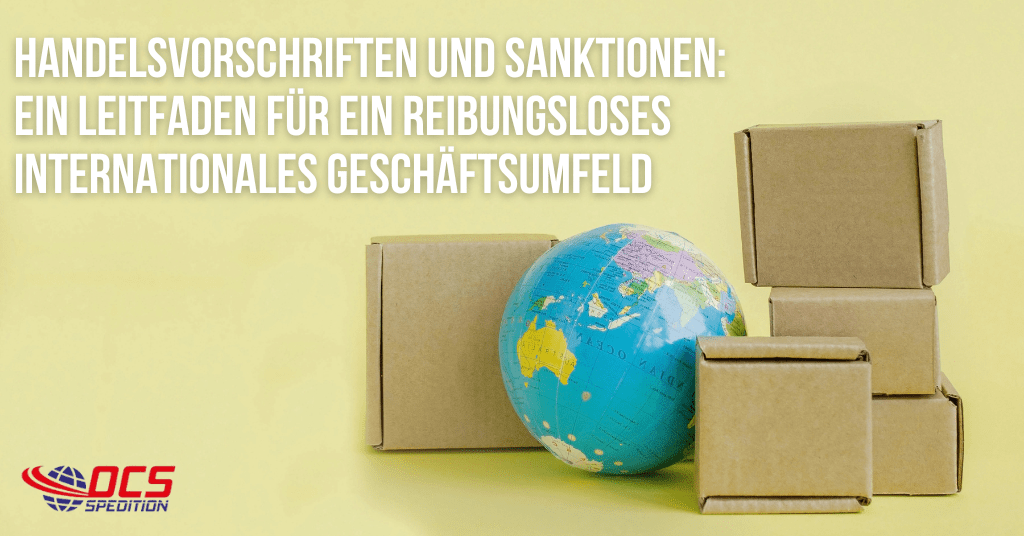In a globalized world where sales flourish across national borders, trade regulations and sanctions have become key issues affecting the dynamics of international exchange of goods. These two aspects also play a crucial role for us in ensuring the smooth flow of goods movements and maintaining international security.
Definition of the 3 most important trading regulations:
Incoterms (International Trade Terms): The Incoterms are a set of internationally recognized rules that determine the allocation of costs and risks between buyers and sellers in international trade. They define who is responsible for transportation, insurance, customs clearance and other aspects. This can prevent costly disputes, reduce the burden on courts and reduce the risk of legal complications for all parties.
Customs regulations : As logisticians, we must pay close attention to customs regulations and procedures in both export and import areas. This includes correctly classifying goods according to the Harmonized System (HS), meeting documentation requirements, complying with embargoes and sanctions, and completing customs formalities. Certain requirements are necessary for goods to be cleared through customs, such as an EORI number. The EORI number is used to clearly identify all economic participants in international trade. This includes exporters, importers, customs agents and other parties involved in customs matters. It is used in various customs procedures to ensure the smooth movement of goods.
ADR (European Agreement concerning the International Carriage of Dangerous Goods by Road): ADR is a multilateral agreement that establishes the rules for the international transport of dangerous goods by road in Europe. It contains regulations for the labeling, packaging and transport of dangerous goods to ensure the safety of vehicles, people and the environment. Different regulations apply at sea and in the air. For shipping, the IMDG codes apply, a printed book which must always be carried on ships in the latest version, while air freight is based on IATA-DGR
A closer look at customs regulations
While Incoterms make it easier for a logistics company to understand the shipping modalities, customs regulations, especially embargoes and sanctions, often lead to questions for shippers and dispatchers: Which countries exactly are subject to embargoes? Which goods can still be delivered to a sanctioned country? What is the difference between embargoes and sanctions?
The last question can be answered relatively quickly:
An embargo is a restrictive measure that limits or even completely prohibits trade in certain goods or services between countries or parties. An embargo can be implemented in various ways, including an arms embargo (prohibition of trade in weapons and military equipment), a trade embargo (prohibition of trade in certain goods), or a trade embargo in general (prohibition of all trade).
Sanctions are measures taken to put pressure on a specific government, organization or individual to achieve behavior change. Sanctions can include economic, political or diplomatic measures. Economic sanctions are often aimed at restricting access to certain resources or the international financial market, which is intended to cause economic hardship for the affected party. Political sanctions may include diplomatic isolation, travel restrictions on government officials, or political pressure.
Which countries are affected by which sanctions or embargoes currently changes very frequently and can therefore hardly be answered within this framework. Nevertheless, trade regulations and sanctions are indispensable elements in the global economic environment and through our knowledge and compliance with these rules we are able to #smoothlogistics and work according to international standards.
In addition, there are a wide variety of customs tariffs, which are not only scrutinized during export controls. Paying attention to all of these points is crucial to ensuring that your products properly comply with customs regulations, thereby avoiding legal issues and ensuring smooth customs clearance.
Note: For reasons of better readability, the language forms male, female and diverse (m/f/d) are not used at the same time. All personal names apply equally to all genders.






